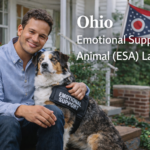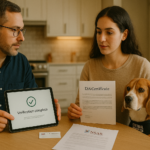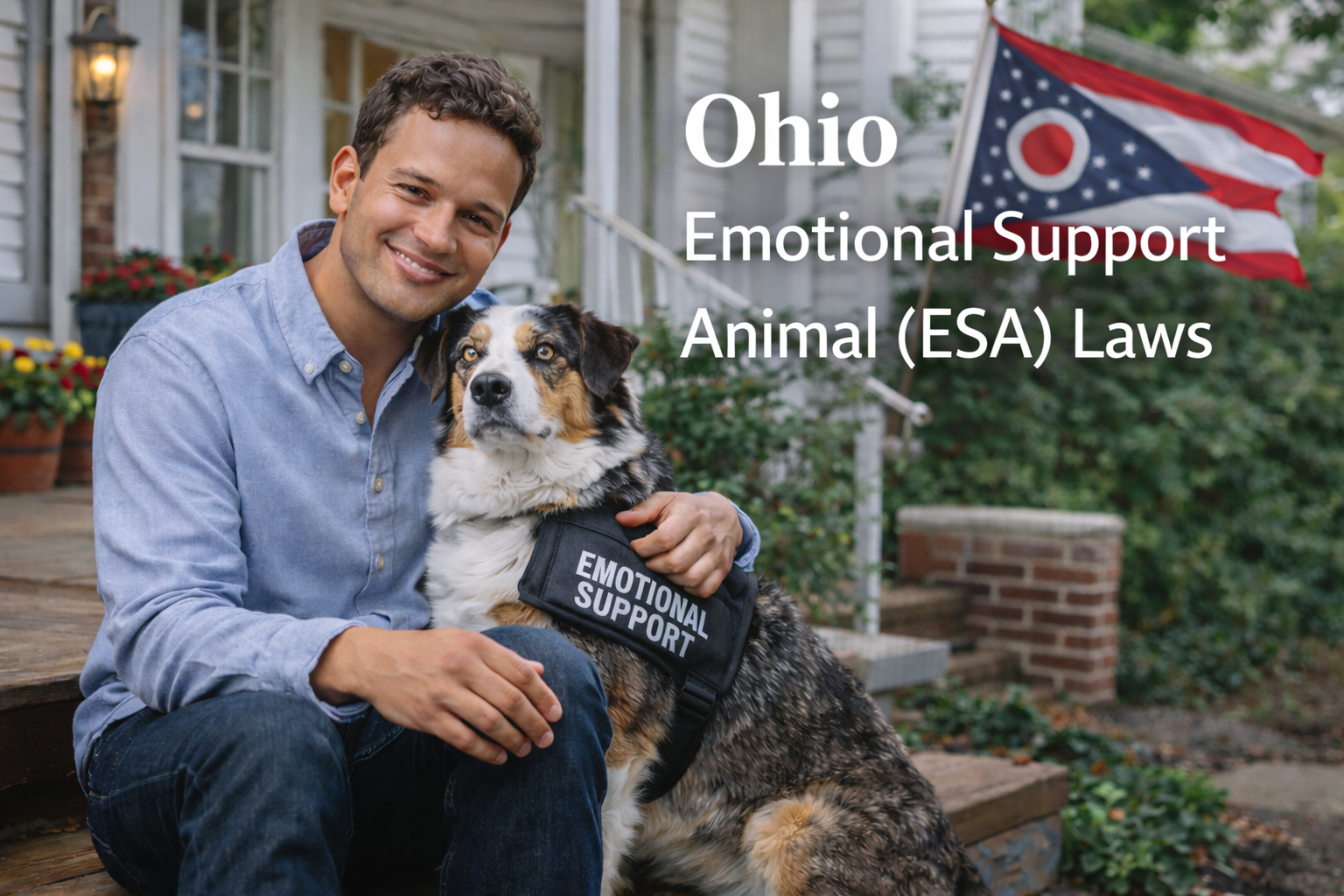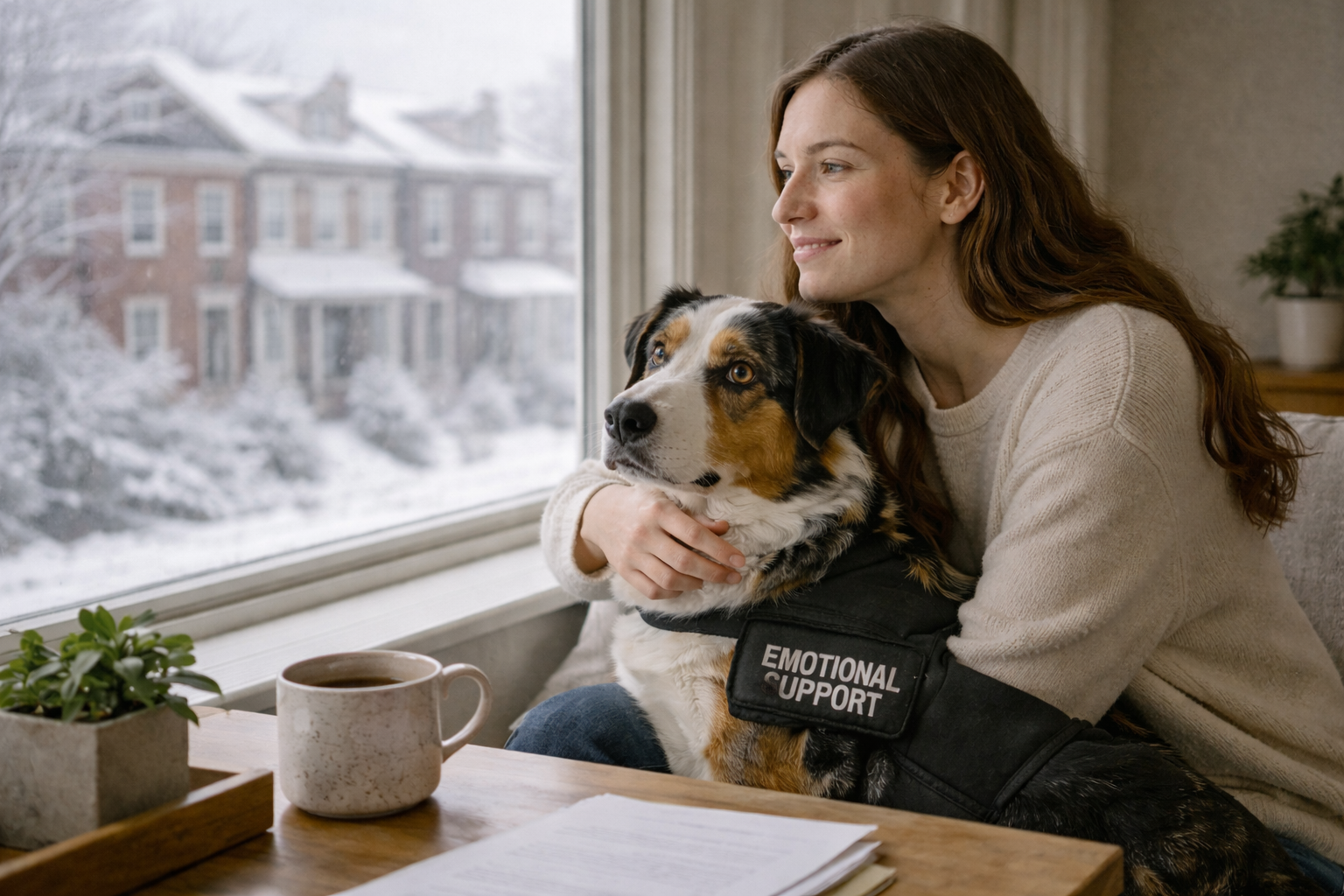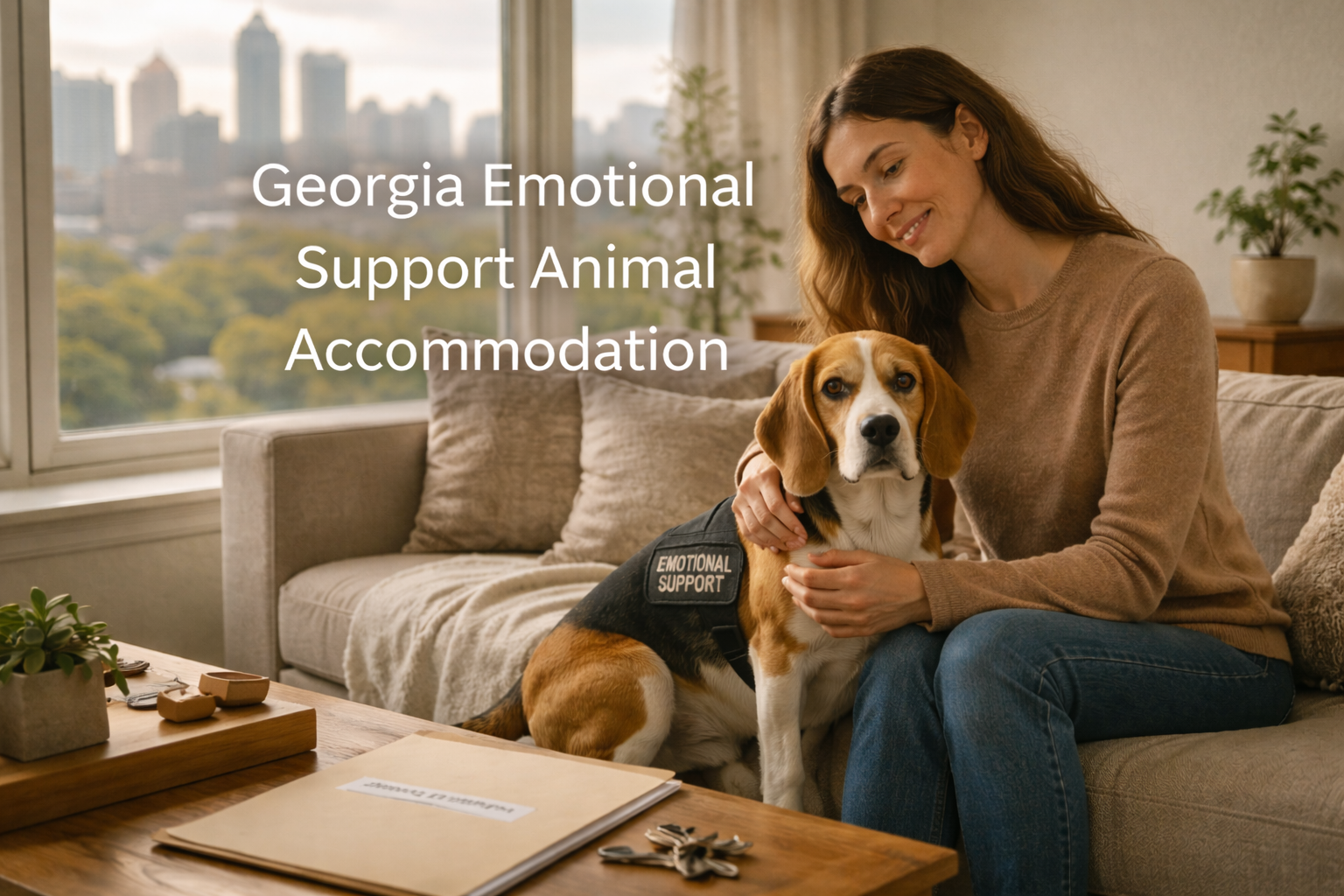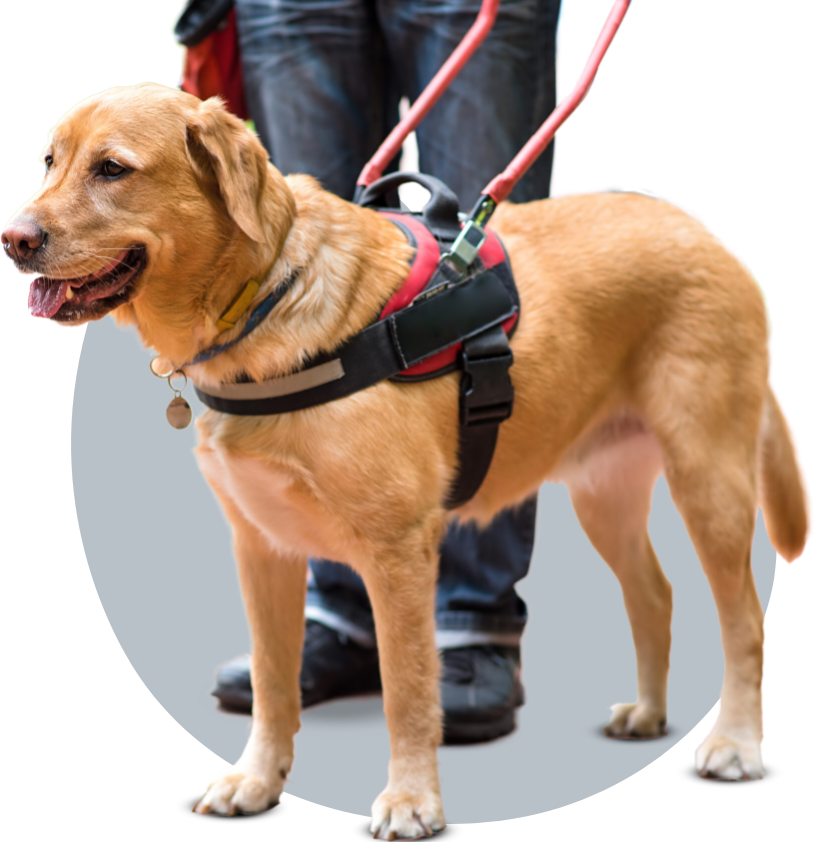How can you make your dog a service animal?

First things first! According to the Americans with Disabilities Act (ADA), someone is considered disabled when he or she has “a physical or mental impairment that substantially limits one or more major life activities, a person who has a history or record of such an impairment, or a person who is perceived by others as having such an impairment.” If you qualify, then you may have a service dog to help you.
If you experience any of the following, you may qualify:
- Limited physical mobility
- Anxiety
- Autism
- Blindness
- Depression
- Epilepsy
- Diabetes
- PTSD
- Seizures
What Exactly Is a Service Dog?
A “Service Dog” means any dog that is trained to perform tasks for an individual with a disability, including a physical, sensory, psychiatric, intellectual, or other mental disability. The tasks performed must be directly related to the handler’s disability.
Examples of work or tasks include, but are not limited to:
- Assisting a person who is blind or has poor vision with navigation and other tasks
- Alerting a person who is deaf or hard of hearing to the presence of people or sounds
- Pulling a wheelchair
- Assisting a person during a seizure
- Alerting individuals to the presence of allergens
- Retrieving items, such as medicine or the telephone
- Providing physical support and assistance to individuals with mobility/balance issues
- Helping persons with psychiatric issues by preventing or interrupting impulsive/destructive behaviors.
What Are Your Rights with a Service Dog?
The Americans with Disabilities Act (ADA), prohibits discrimination of disabled persons. That means you are entitled to be accompanied by your service dog anywhere a non-disabled person could go, even when pets are NOT allowed.
Flying with a Service Dog
If you are disabled and have a trained service dog, you have the right to be accompanied by your service dog in the cabin of an aircraft and not be charged a fee.
Qualify for No Pet (Including Limited Size/Species/Breed) Housing
The Fair Housing Amendments Act requires property managers and landlords to make a reasonable accommodation to permit a disabled person to have a service dog and not be charged a pet fee.
How Do You Make Your Dog Qualify as a Service Dog?
Since your dog must perform a task for you that you have great difficulty doing yourself, if your dog already knows how to do it and is obedience trained, you’re all set. Many people train or have someone help them their dog for the sometimes-simple tasks, necessary to qualify. Many dogs can perform tasks naturally, and it takes just a bit extra to add a task to what they already know to do. Register your pet as a service animal.
Is a Physician’s Prescription Necessary?

It isn’t necessary to have a letter from a doctor that states you are disabled, but if someone legally challenges you, proof of the disability will be necessary. When in public, you should be prepared to confirm you are disabled and provide credible verbal evidence of what your service dog is trained to do.


